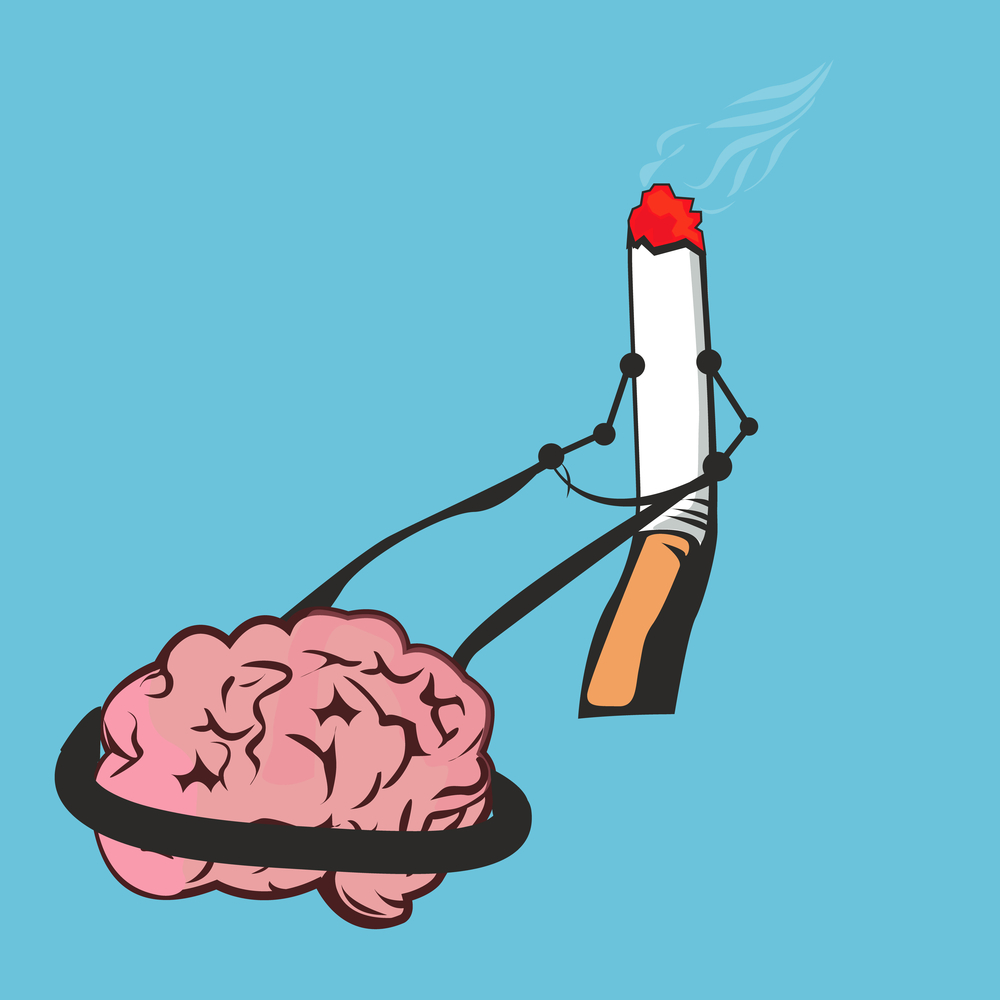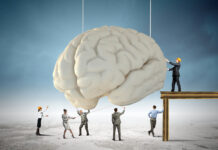A new article in the International Journal of Drug Policy argues that calling addiction a “brain disease” can produce epistemic injustice by sidelining the knowledge and experience of people who use drugs.
Shane O’Mahony of the University of Bradford reviews the brain disease model of addiction and traces how it shapes research, services, and law. He places the model in the context of the drug war, uneven enforcement, and the split our systems draw between harms from prescribed medicines and harms from illegal substances. The result, he writes, is a biology-first frame that pushes social, economic, and cultural realities to the margins and redistributes credibility away from lived experience.
“The category ‘drugs’ creates an artificial and harmful dichotomy between those who use licit medicines and experience harm and those who use illicit substances and experience harm. Furthermore, this artificial dichotomy is compounded by racist and colonial discourses central to the war on drugs, and a rigid biological reductionism that de-emphasises social, economic, and cultural harm.”
















To answer the title, yes. I feel like that should be obvious just from moral argument, no data. I’ve long found the idea of addiction as “disease” to be stupid and harmful for a few reasons.
1. Any behaviour can become addictive. Ever seen that “my strange addiction” show? Most of the habits on that show involve no mind-altering substances, yet all the same patterns are there as with drug abuse, save for biochemical withdrawal effects. Meaning, it starts as trauma coping, and gets out of hand.
2. As the exerpt from the article pointed out, this “disease” label is only accepted for habits involving drugs we’ve deemed morally wrong (alcohol and illicit drugs) but not for drugs like adderall that see both overwhelming use AND abuse, sometimes in the same people.
So the claim is then that ADHD is the brain disease, and amphetamines “treat” it. So street meth should help too, right? … Right? It’s so messed up to see people using psychiatry to defend their crippling speed habits…
3. Labeling coping mechanisms as brain diseases is just evil. I can’t even say much else on that.
4. The very idea of brain disease opens the door to abuse where anyone can be dismissed or gaslit if they say something “normal” people don’t like or agree with. It strips vulnerable people further of their already limited agency. “You” aren’t the whole of your self anymore. People see “you” existing in tension with “disease” like another personality, but one they get to define, not you. They get to gaslight you about whether you’re even in control of your own actions.
That said, I super reject the idea that every such thing CAN be overcome with willpower. It’s trauma coping. Give people a safe space to cope, and an empathic ear, and they’ll be a lot better off.
Report comment
You may not believe this, but methamphetamine HAS been prescribed as a “treatment” for “ADHD.” I believe it is branded “Desoxyn.”
Report comment
OMG you’re right. We live in a post-satire world. We’re right back at the sketchy drugstores of the 20s marketing heroin to kids for toothaches. And the vast majority of people are buying it.
Report comment
The real problem? Psychiatry convinced the public its drugs—yes, drugs—are somehow different from the “illicit” kind. But the chemistry says otherwise.
The only difference is one pusher has a license.
Report comment
“Labeling coping mechanisms as brain diseases is just plain evil. I can’t even say much else on that.”
I sure can. Labeling coping mechanisms as “disorders” is just as evil, if not more so—which makes the DSM the very definition of evil.
Report comment
I remember when there a was a big push to call alcoholism a disease. I thought it was bullshit then and I still do. I think the medical community did that so insurance would pay for expensive rehab stays.
Report comment
There’s confusion around the world between “medication” and “drugs.” Psychiatric medication or psychiatric drug? People perceive psychiatric drugs as “medication.” However, these are not medications; they are legal drugs.
In the past, Google (translate) would show psychiatric drugs as “drugs.” But now it lists them as “medication.” When you prescribe psychiatric drugs, it shows as “psychiatric medication”. In other words, it’s deceiving people. Google even displays the word “drug” as “narcotic.” Google is constantly deceiving people.
Psychiatric drugs are also used as “drugs” in English-speaking countries. Most people don’t realize that all psychiatric medications are “drugs.” If they knew… they would certainly not buy or use these psychiatric poisons.
Especially people who have religious beliefs (believers)… it was would never use it. In all religions, anything that harms a person is considered sinful/haram, and therefore, it would be considered “something harmful whose use is forbidden.”
Psychiatric drugs are the same. All psychiatric drugs (medications) are not “medicines,” but legal drugs (narcotics).
People of faith are actually using “legal drugs” but they don’t even know it. In short… for decades, psychiatric drugs containing “toxic chemicals” were presented to humanity as “medicine.” They were deceived and made to use psychiatric drugs (narcotics). “Drugs” were given to people of faith legally. People of faith were made addicted to “legal drugs.” Their children were born, and many of these children were found to have mental illnesses (often schizophrenia). All of this was the result of psychiatric drugs.
In other words, humanity has been deceived. We are one of those deceived.
Even artificial intelligence has figured out that psychiatric drugs are not medicines but “drugs (narcotics.)” One single “humanity” did not understand this.
https://medium.com/@annaleo_/psychiatric-drugs-are-just-drugs-a-deep-dive-into-the-industry-its-history-and-its-harms-8e53f413f71a
With my best wishes. 🙂 Y.E. Researcher blog wrieter (Blogger)
Report comment
NOTE: The Gravatar image is my sister’s picture. We are trying to save him from psychiatric care.
Report comment
My problem with this article (I am sure present in the original paper and perhaps also influencing the writer of this article) is its Critical Theory slant. I find this most unhelpful, as the main purpose of Critical Theory seems to be to foment armed revolt.
The basic argument of the paper is sound.
But what is a better way to understand this problem? “Lived experience?” What a buzzword! Addictions of all types CAN be treated, to the benefit of all involved. The flagrant use of dangerous drugs to “solve” all sorts of problems only points to the ignorance and desperation of the medical people, and perhaps to their perfidy (evil intentions).
Report comment
As one who was made ungodly sick, by an antidepressant (incorrectly claimed to be a “safe smoking cessation med,” which it most definitely is NOT) and an opioid, which was sold to me as a “safe pain med” (again which it most definitely is NOT) … so doctors could cover up easily recognized malpractice, with complex iatrogenesis.
I agree, the psych industries and mainstream medical doctors, lying to their patients that their neurotoxins are “safe,” to “treat” legal vices, is extremely unethical and staggeringly harmful.
Report comment